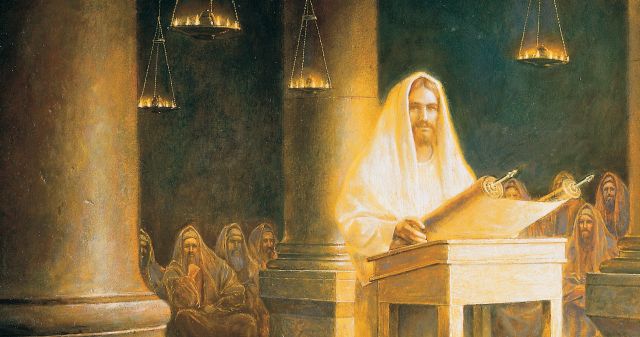
If the authenticity of Old Testament books are in question, then it would be important to ascertain whether references made from it by Jesus are literal or figurative. If Jesus metaphorically referred to Jonah being swallowed by a whale, as a description of his forthcoming burial, then he is merely using it as an illustrative story. However, If Jesus refers to Adam & Eve, as being our first literal parents then we have an issue with science, that has evidence to suggest Home Sapiens have conservatively existed for thousands of years prior to biblical creation in 4000 BCE.
List of Old Testament references purportedly made by Jesus in the New Testament
Sabbath & Shewbread “Haven’t you read what David did when he and his companions were hungry? He entered the house of God, and he and his companions ate the consecrated bread”. Matt 12:3,4 1 Samuel 21:6, The Priest gave David and his men consecrated bread. Jesus uses this reference as a literal event, otherwise it would not work as a defence against the Pharisees accusation of unlawful Sabbath behaviour.
The Sign of Jonah the Prophet The Pharisees asked to see a sign from Jesus, Matt 12:39,40, he answered “But none will be given it except the sign of the prophet Jonah. For as Jonah was in the belly of a huge fish, so the Son of Man will be three days and three nights in the heart of the earth”. Is Jesus speaking literally about Jonah’s experience? Matt 12:41 “The men of Ninevah will stand up at the judgement with this generation and condemn it, for they repented at the preaching of Jonah, and now something greater than Jonah is here”. In verse 42 Jesus refers to the Queen of Sheba additionally judging the current generation, “as she came from the ends of the earth to listen to Solomon’s wisdom, and now something greater than Solomon is here”. Literary consistency is important in phrasing any argument, Jesus refers to Jonah as a Prophet, that seems a literal statement, He claims the men of Ninevah and the Queen of Sheba will judge the current generation and condemn it. By saying ‘will’ rather than ‘would’ he also appears to make it a literal statement. The bookend statements therefore appear literal, his construction would be very poor if he then refers to the meat in the sandwich as being metaphorical, namely Jonah being in the belly of a fish for three days. In a separate article drawing on the views of biblical writers, they demonstrate that the story of Jonah is satirical and an exaggeration throughout. The story is useful to demonstrate God’s love for all people. However, it does not support the idea that Jesus is a God if he refers to metaphorical and illustrative stories as literal events. Matt 16:4 repeats the expression, the sign of Jonah.
God said to you I am the God of Abraham, the God of Isaac, and the God of Jacob Matt 22:32 Jewish archaeologists such as Israel Finkelstein have yet to find any historic evidence to support the existence of these ancient patriarchs. Modern biblical scholars believe that the Torah was not written by Moses (1400 BCE), certainly not in Hebrew, as the earliest examples of written Paleo-Hebrew date back to the 10th century BCE. Nearly all of the Hebrew Bible, with much of its present form, is in a dialect that scholars believe flourished around the 6th century BCE, during the time of the Babylonian captivity. Jesus as God, would know whether these patriarchs literally existed, he chose to declare that God literally acknowledged them.
First Parents Gen 1:27 “God created mankind in his own image…..male and female he created them”. Mark 10:6-9 “But at the beginning of creation God made them male and female”. Jesus is discussing divorce. Jesus does not name Adam & Eve, but the exact phrasing is referencing Genesis, it is the commonly accepted beginning of mankind among the Jews. There is nothing to suggest that Jesus is not referring to Adam & Eve. If they are our literal first parents, there is an issue with regard to dating references as indicated in the introduction above.
Moses and the Burning Bush Exodus chap 3, Mark 12:26 “Have you not read in the Book of Moses, in the account of the burning bush, how God said to him, I am the God of Abraham, the God of Isaac and the God of Jacob“. Jesus is claiming God, is a God of the living, that he had dealings with the ancient patriarchs, that these are literal individuals.
I have mentionned the references Jesus makes in the oldest of the two Gospels Mark & Matthew, that I believe are probably the most accurate in covering the life of Jesus, Luke makes additional references to the murder of Abel 11:51, Noahs flood 17:26,27, Corruption in Lot’s day 17:28,29 the worldiness of Lot’s wife 17:32. The murder of Zechariah 11:51, Naaman’s leprosy, 4:27, Elijah, a widow and famine 4:25,26. The Gospel of John has Jesus making reference to Moses and heavenly manna 6:31, Moses and the brazen serpent 3:14.
My assessment is that he appears to make literal references in most if not all cases. Lack of evidence from archaeology is not yet supporting the existence of the Patriarchs, neither Moses. Science argues compellingly the existence of human beings long before Adam & Eve. Probably the strongest indictment of the reality of Jesus’s OldTestament references is that of Jonah (see the green link above). One line of reasoning that might absolve Jesus of literal references, is if the Gospel writers wilfully misquoted him. If Jesus is making literal references, yet they are figurative stories, he is not representing himself well as a God, instead he gives the appearance of a man, following the faith of his ancestors, believing their stories are historical. What do you think?